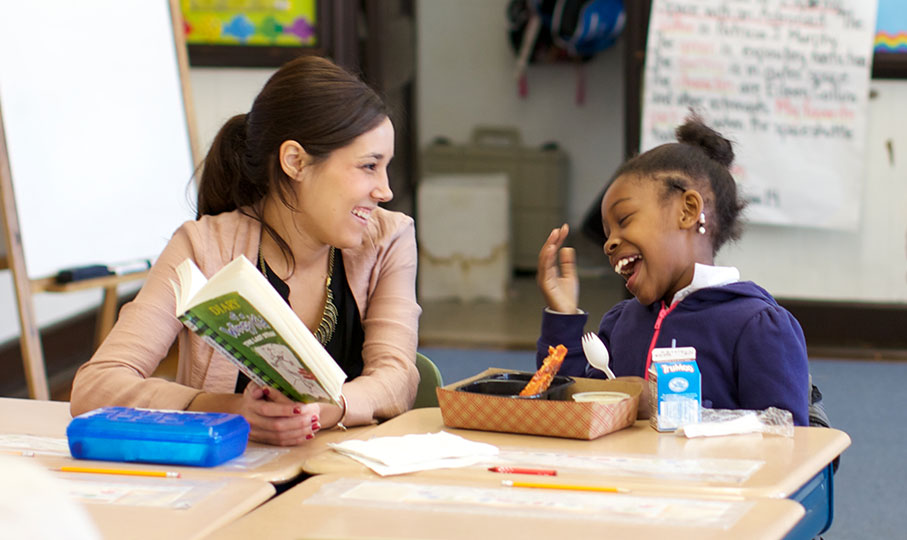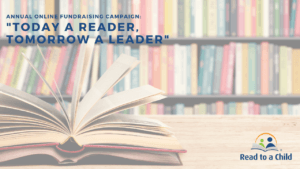Why Read to a Child®
When an adult reads aloud to a child, both parties have a joyful, rewarding experience that instills a love of reading, improves literacy skills, and enhances a child’s well-being.
Read to a Child’s model is based on the premise that a love of reading is a driver of opportunity for children throughout their lifetime. A caring connection with a reading mentor helps to facilitate the attention, engagement, and confidence that all children need to thrive.
The Read Aloud Difference
Reading aloud is known to be the single most powerful way to promote strong reading skills in children. Read to a Child’s Read Aloud Mentoring Program provides a unique and winning combination of mutually reinforcing tools – Mentoring and Reading Aloud – to help reduce the resource gap at Title One elementary schools so all students have the opportunity to thrive.
The bond that is formed between students and mentors motivates our students to engage in literacy at greater levels than they would otherwise. They are offered the gift of an experience that they not only love, but is proven to be good for their academic success. We are dedicated to instilling a love of reading, which brings a level of intrinsic motivation that will serve them well into the future.
We select schools - and students - that allow us to target those who might benefit from Read Aloud Mentoring. We are careful to be as low a burden as possible on our schools by providing our own staff to coordinate programs and make things run as smoothly as possible for all involved. Because the work being done in classrooms is irreplaceable, read aloud mentoring takes place outside of instructional time, usually during the child's lunchtime.
Finally, we pride ourselves in our ability to offer flexibility for busy professional volunteers, offering a meaningful way for community members to consistently engage with children within the community they live or work, all within a busy work day.

“Reading aloud is the single most important activity for building the knowledge required for eventual success in reading.” Becoming a Nation of Readers, 1985
"COVID-19 school closures set student progress in math and reading back by two decades and widened the achievement gap that separates poor and wealthy children." The New York Times, 2023
“The educational impacts of the pandemic were not only historically large, but were disproportionately visited on communities with many low-income and minority students." Harvard Graduate School of Education, 2023
“Students are most likely to make gains in literacy skills when the intervention is frequent, 1-1, and a minimum of 30 minutes per session.” Allington et al, 2019
“Students with mentors are 55% more likely to enroll in college, 78% more likely to volunteer regularly, and 130% more likely to hold leadership positions than their un-mentored peers.” Mentoring.org, 2021
“I have participated in the program for at least 10 years and continue to fully enjoy it. I love to see how each child progresses and opens up each year. Some have been shy, some have been inquisitive, some have been rambunctious, but all have seemed to benefit from the program. I believe a testament to the positive impact of the program to its readers is when Carmel told me she was sad that this was her last year in the program.” Volunteer Mentor
